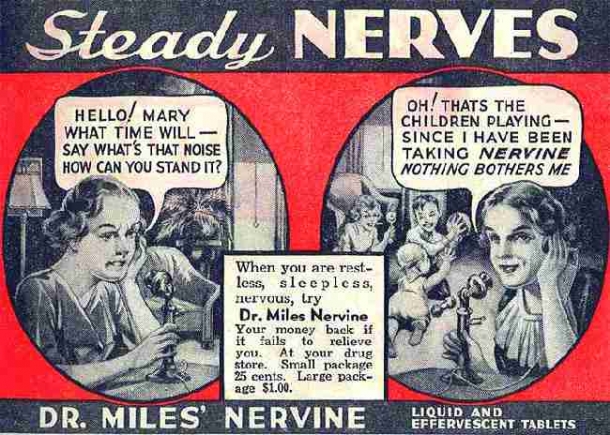Create a Marketing Budget That Works (for Therapists)

This post is a little less sexy than our normal fare, but it’s good, solid, practical stuff. Today we will be helping you plan your advertising and marketing budget, so whip out that calculator. What follows will be the most useful to therapists who have been in business for at least 6 months or more; less so for folks just getting started.
Cost of Acquisition
Let’s find out how much it costs for you to acquire a new customer for your therapy practice.
- Take a look at how many clients you had last year. How many NEW clients did you attract last year?
- Now add the expenses you racked up trying to acquire those clients (yellow page listings, membership and referral placement fees, advertising, flyers, brochures, mailing list subscription fees, business card printing, etc)
- Divide your expenses by the number of new clients you had, and voila, you have your cost per acquisition.
This number is usually viewed in conjunction with the Client Lifetime Value (CLV).
Client Lifetime Value
While you can spend quite a bit of time tinkering with the Client Lifetime Value number, for now we’ll just eyeball it. Review the new clients you acquired last year, and calculate the average of how many sessions each client attended and paid for. This is your CLV.
The Margin
The margin is the spread between your Cost of Acquisition and the CLV. How’s that number look? Hopefully your Client Lifetime Value is greater than your Cost of Acquisition; to grow a business you’ll want your CLV to be about three to five times that number. Not quite there? How can you improve your margin?
Let’s Take a Closer Look at Those Numbers
Look for patterns in your new clients from last year. Did you notice a large number of one-time visits? What happened there? How were they referred? Did they fit within your ideal client demographic? Try to take stock of how those sessions went. Is there anything that you would like to have done differently that might have changed the outcome? Amongst the clients who did come back, are there any commonalities? What are you doing right?
Do you ask your clients how they find you? If not, start keeping track. You’ll want to know which marketing efforts are effective, and which are a waste of time and money. New clients cost more than those who loyally return, but repaying that loyalty by pushing services that are no longer truly needed is an ethical issue: it’s not cool. As a therapist you may need to up your business savvy to keep necessary ongoing marketing costs manageable.
Now What?
Streamline: make your business smarter. Drop all of the non-performing, expensive tactics with low outcomes, and double up on the top 2 or 3 tactics that work well for you. Continue to keep track of your marketing efforts; you can’t learn anything from information you don’t have. Build new communication channels.
Building New Channels?
There are only so many clients a therapist can see in a day. Read more about options for increasing profits by making the most effective use of your labor, like low-cost therapy groups and workshops.



Comments
Denise Stein
May 5, 2011
Permalink
While this article may have more CURRENT practical use for those who have an established client base; it is also useful to those just starting out. Many therapists have not been educated in the art of marketing; and several more are just plain uncomfortable talking about - though it's a necessary part of any business, including a therapy. For example, the author advises that therapists find out where their clients found them - sound advice. Now, HOW does a therapist do that? On the intake sheet? When the new client calls to book an appointment? Making chitchat before or after the actual session? And how does the therapist track the outcome of each session, to better obtain that CLV number? If a therapist is booked for a group, addressing one topic for a limited amount of time; does she/he count that as one client, or as many clients as people who attend the group sessions? How does a therapist just starting out go about finding new clients? Where are (besides Whereapy, of course!:) the best places for networking online and off? As a marketing-phobe, I am most interested in the feedback from veterans who have been at it for a while.
leigh
May 5, 2011
Permalink
To your first question - HOW does a therapist find out where their clients found them? The "where did you hear about us" section is usually on the intake sheet - up where the address and contact info is before you get into the nitty gritty of the client history.
How does the therapist track the outcome of each session, to better obtain that CLV number?
Good question - sometimes it's hard to decide what to measure. and measuring the outcome of a session is subjective at best. Aside from keeping detailed session notes (always helpful) you can record your own thoughts about how the session went - include a few details for reference: I once read a blog where the therapist lost a client 15 years ago because she decided to wear Birkenstock sandals... guess you can't please 'em all!
For statistical inspiration you can read up on how Florence Nightingale provided evidence for better sanitation without even know about germ theory. she just meticulously tracked the evidence in front of her - she tracked how often the doctors washed their hands (not very often), the placement and distance apart of the beds, the number of windows etc.. Amazing story. http://www.sciencenews.org/view/generic/id/38937/title/Florence_Nighting...
Deciding what merits tracking is up to the therapist - start with a hypothesis and work from there.
If a therapist is booked for a group, addressing one topic for a limited amount of time; does she/he count that as one client, or as many clients as people who attend the group sessions?
I would look at each section (individual sessions, group sessions, workshops) as distinct areas of study. Think of each as a brand or "product". I know it sounds awful - just stay with me past the ick factor here. You = a company. A company usually has more than one "product." To get an accurate reading on each "product line" requires a different marketing approach and separate tracking. If people dig what you have to offer, you will see some crossover between "product lines." Clients will "upgrade" or "downgrade" or "withdrawl" their investment depending on budget, if they are pleased with service, and if they feel their needs have been met and no longer need the service.
But enough blathering, for groups I would expect session notes to be a little lighter per individual per session and more descriptive of the dynamic. If you notice new people leave because they never get a chance to talk... because Fred hogs the meeting, then you know you need to refocus your magical therapist skills and intercede to make the meeting more equitable. If Fred just can't give others a chance to share, it might be time to suggest individual sessions.
How does a therapist just starting out go about finding new clients?
BIG question - I'm working on a few articles about this.
Where are (besides Whereapy, of course!:) the best places for networking online and off?
Again huge question -- and more articles are in the works on these too. Sorry to keep you waiting, I've been geeking out over my history of therapy posts - I guess I better get to work on the stuff people really want :)
Heather
May 10, 2011
Permalink
I haven't worked privately yet, but at the counselling agency where I used to work (which was publicly funded) we kept a list of private therapists in the area, and so when people called who were looking for something we didn't offer or didn't fit our criteria, we'd refer them. As an agency we always wanted to know who was offering what in the community, because often there were groups/ services that private therapists were offering that complemented what we did nicely, while it wasn't within our mandate to do so. We'd often get therapists calling to tell us about their work and referral info, and we'd always take it down and keep it on file.
Another great place for networking is with your governing body, if that's applicable; I'm not sure how it works in the States, but here in Canada, the associations for licencing Social Workers and Psychologists each have websites that list therapists registered with them who do private work, their areas of expertise, rates, etc. Also, (and again not sure if it's transferable across the border) a lot of insurance companies refer to lists of therapists for counselling services they cover; up here they're called Employee Assistance Programs. I hope some of that is relevant!
Denise Stein
May 10, 2011
Permalink
Heather; yes that does help some. Again, while we do have EAPs here too, and cross-referrals also - that only works for those who are licensed. Those of us who offer different services, but still in the helping profession, are a little more challenged in both the marketing and developing of a client base. But that's what we are doing here on Whereapy - I already had a therapist I know come to visit the site and sign up for something or another - so I'm sure the more dialog we have amongst ourselves, the better off we will all be. Do share with us when you DO go into working privately, if you plan to do so. I, for one, would love to hear how it works out for you there. Thanks for your help and encouragement. Denise